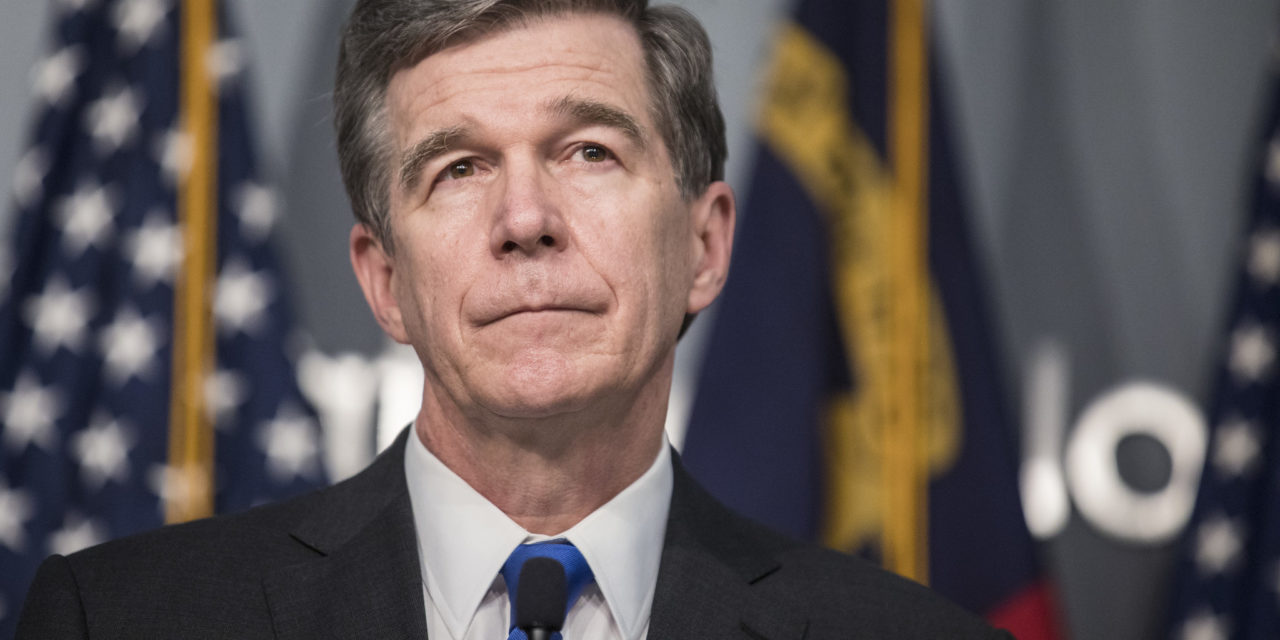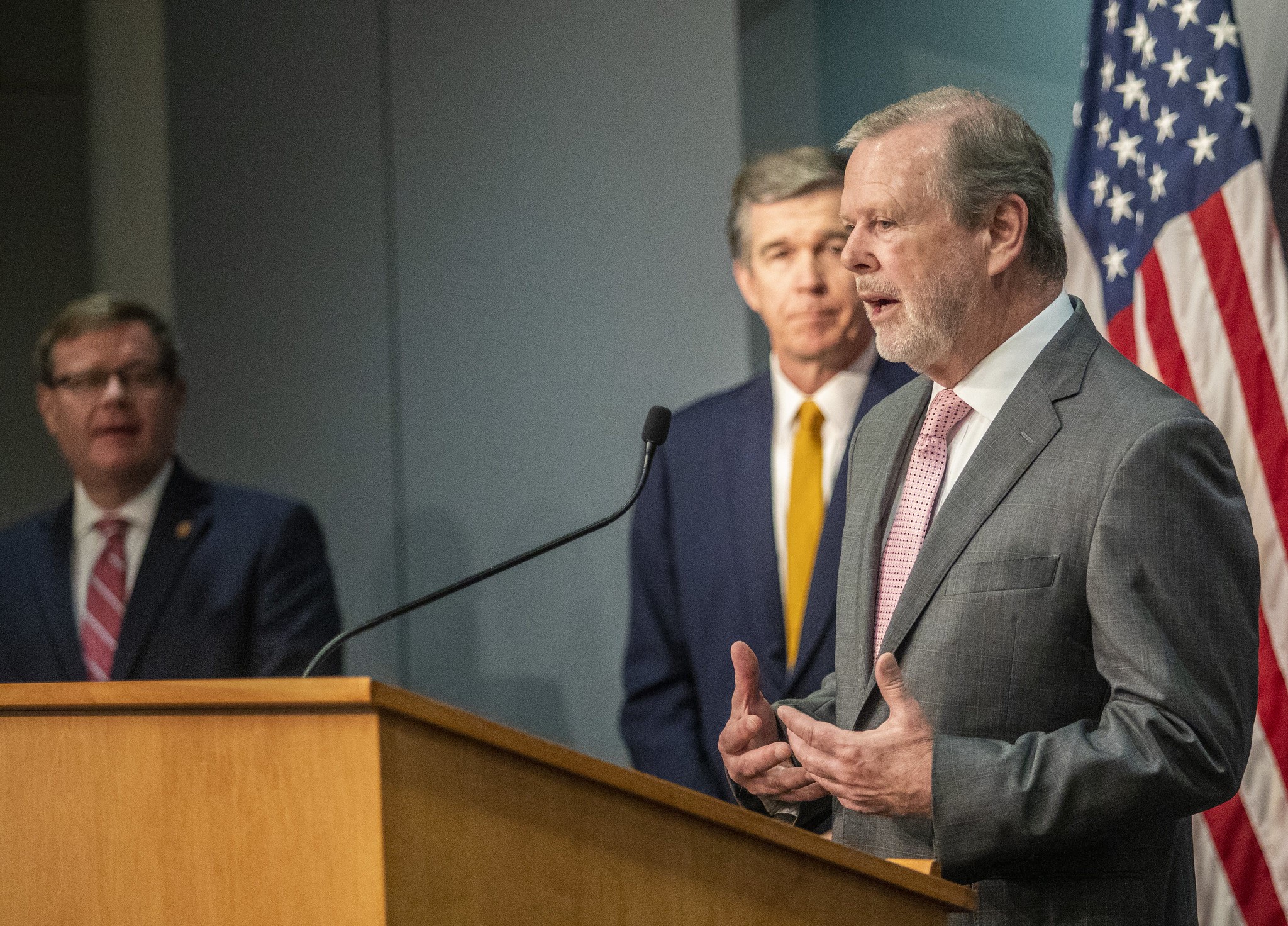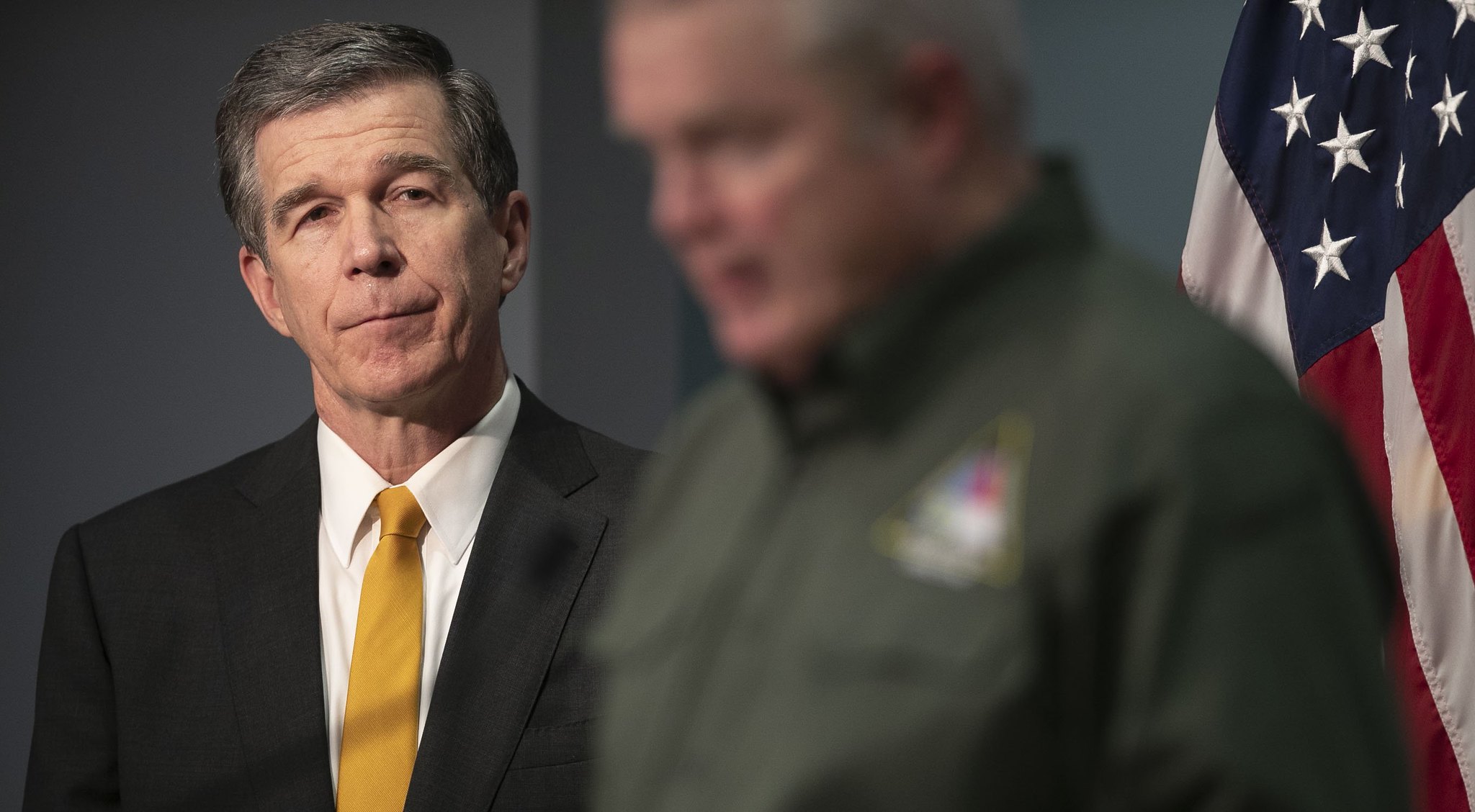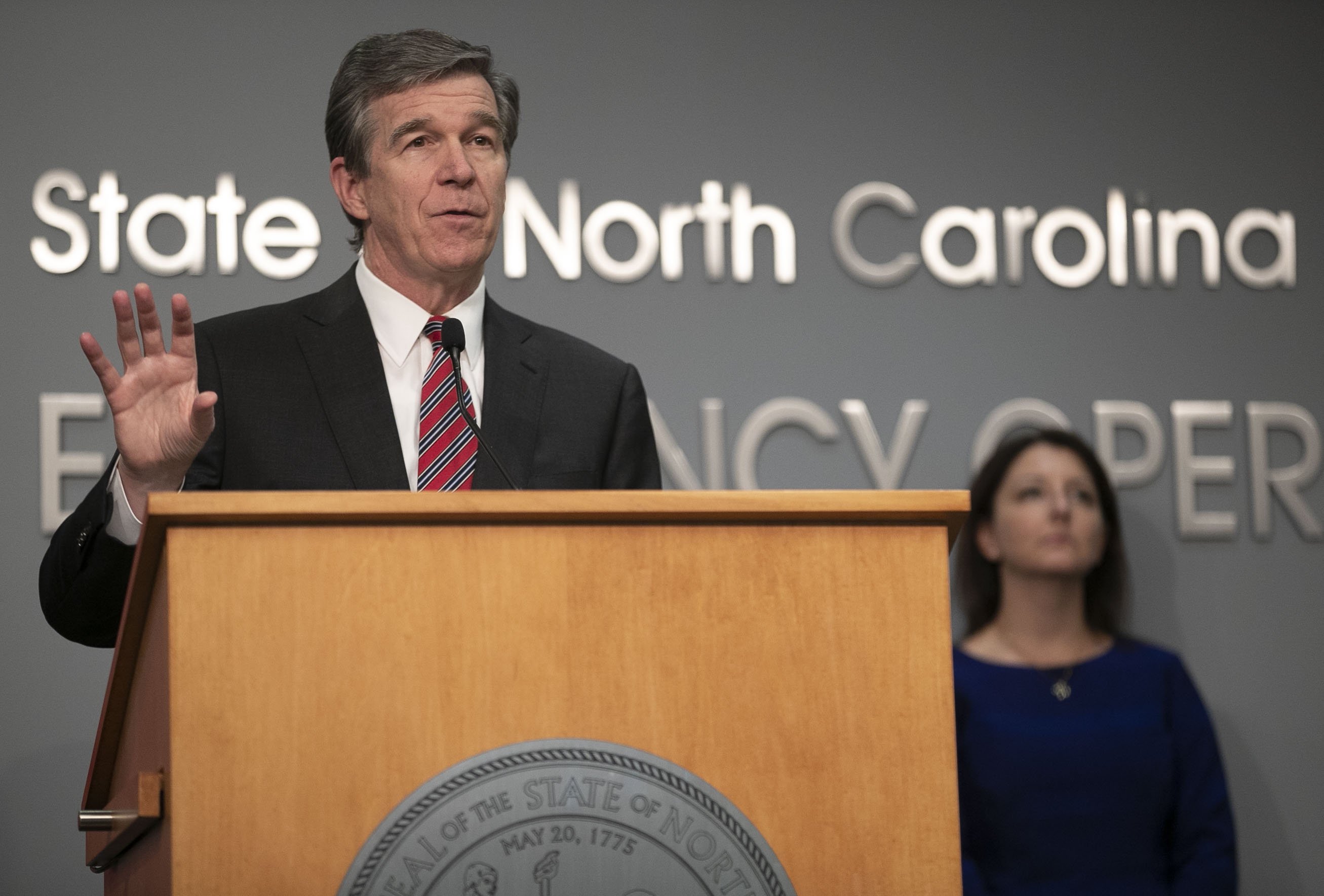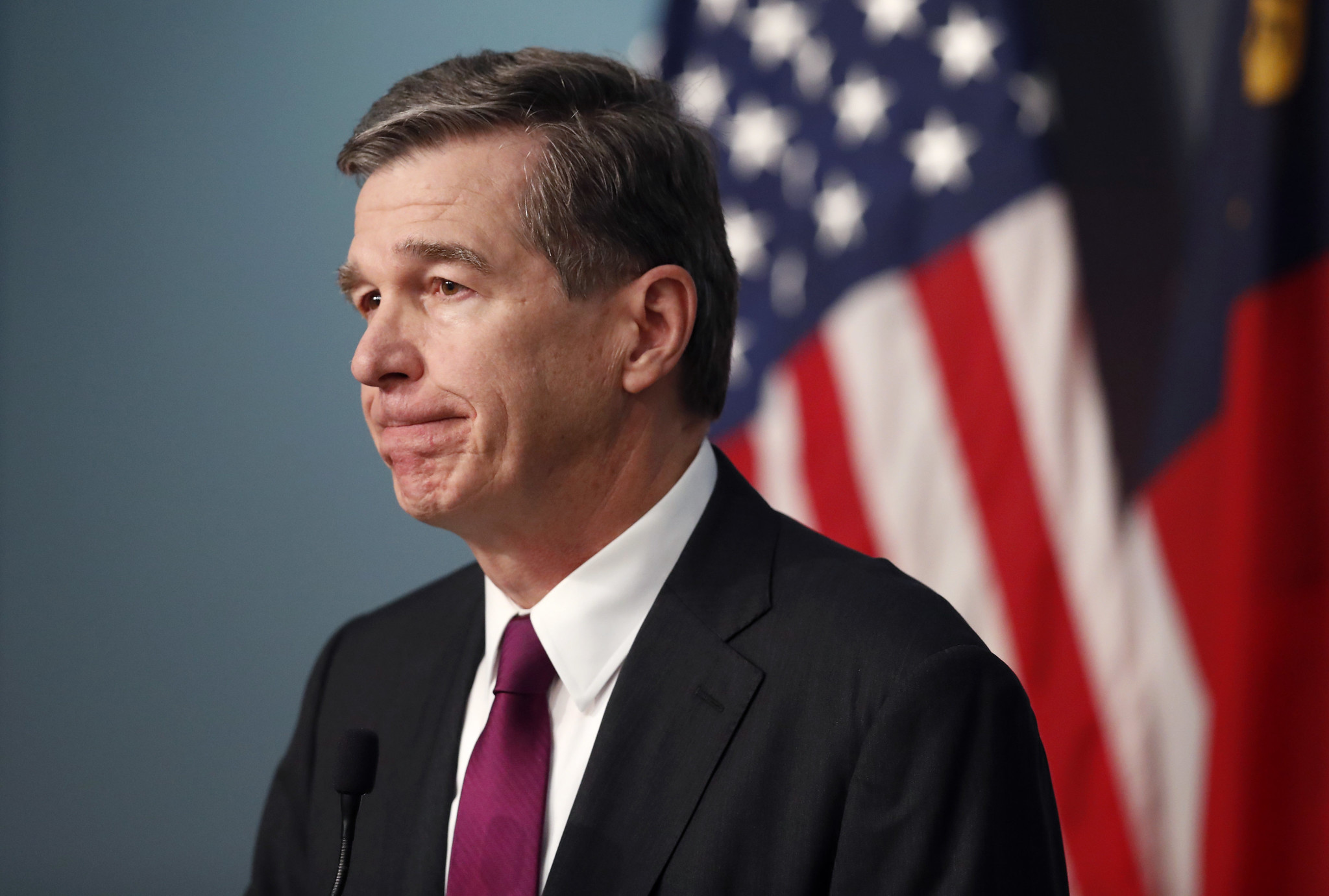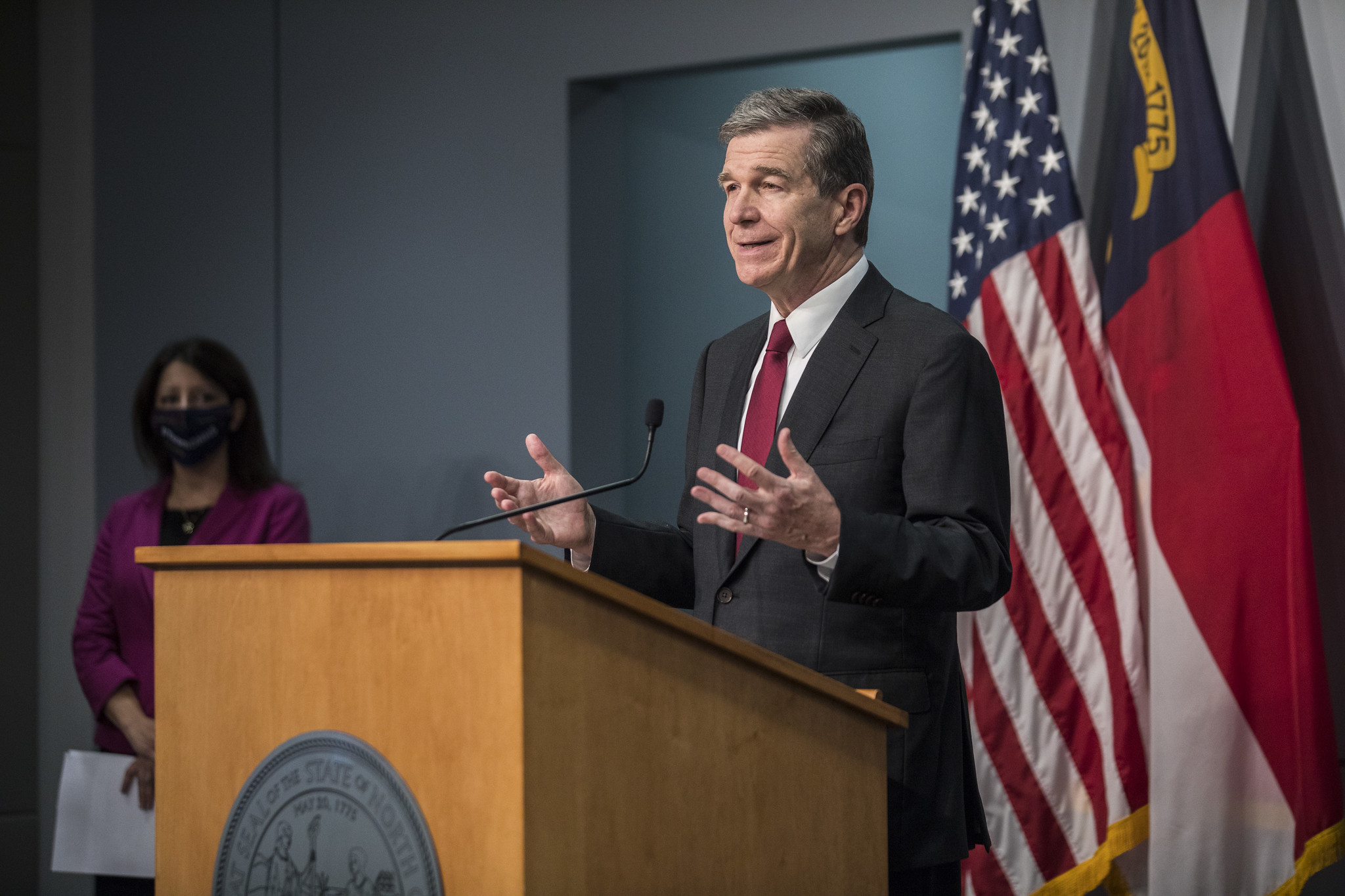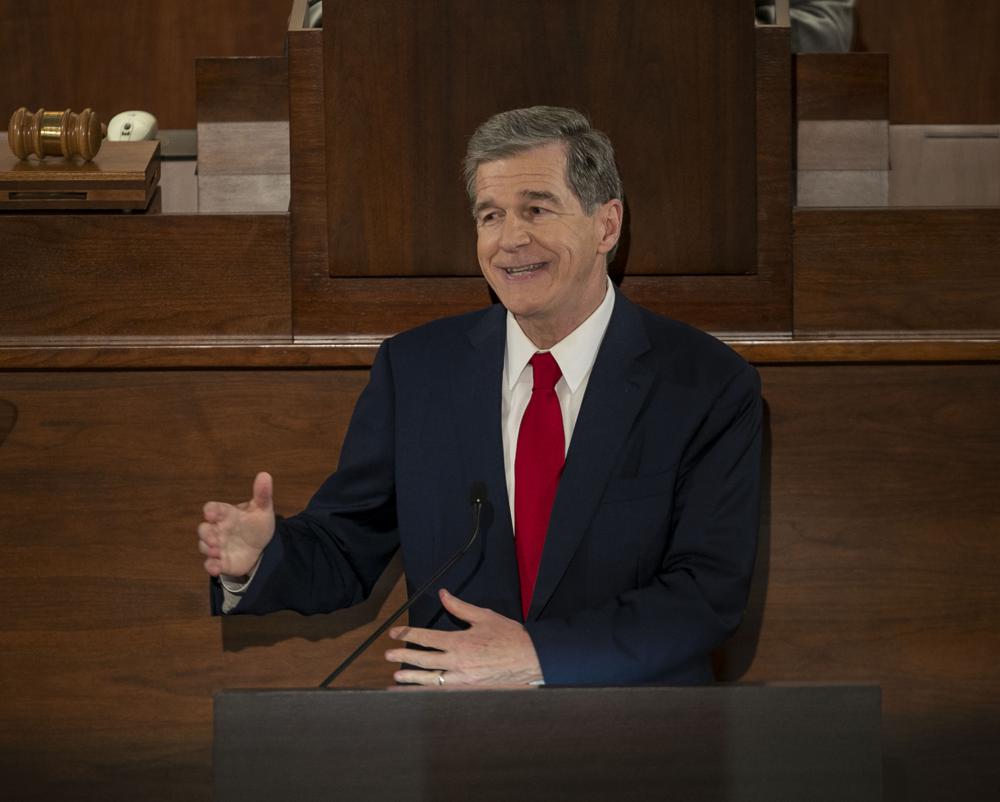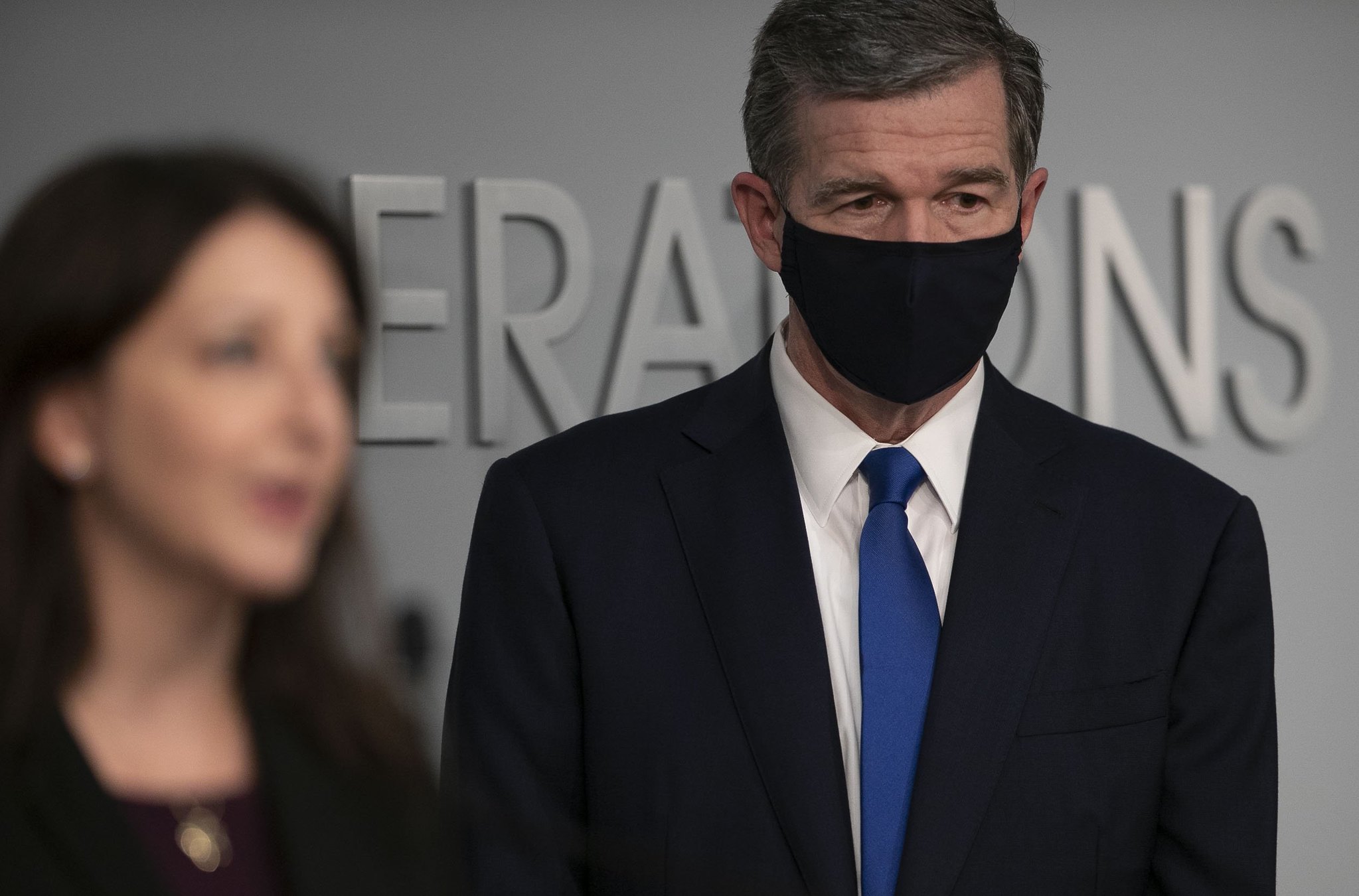North Carolina state officials are requiring public schools open under models that use both in-person instruction and remote learning this fall.
At a press conference on Tuesday, Governor Roy Cooper shared the state’s official recommendation of a Plan B model for schools, which allows students to receive some teaching on-campus but at limited capacity and with remote learning being utilized. Exclusively in-person instruction and schools at full capacity, or at a capacity where physical distancing is not possible, will not be allowed under the guidelines.
In addition to this teaching model, the state government has various public health guidelines all public schools will be required to implement for the upcoming year. All students, teachers and staff members will be required to wear face coverings while on school grounds. Officials said each will be given at least five washable, reusable masks upon their return next month.
Symptom screenings must take place daily before an individual enters a school building and markings must be created to indicate six feet of distance in classrooms, hallways, restrooms and cafeterias. Schools must also limit any nonessential visitors or activities with external groups.
If an individual tests positive or is a presumptive case of COVID-19, schools must require them to stay away from school grounds until they meet the criteria to return. If someone become symptomatic while at school, they will be placed in a designated area for such individuals that will have no other purpose in school functions. From there, nurses in appropriate PPE should examine the symptoms and plans should be made for the individual to return home for quarantine.
Cooper said these guidelines are the result of collaborative and “painstaking” work, and indicated they could be changed again depending on if the state’s COVID-19 trends worsen.
“The start of school is a month away for most of our children,” he said. “If trends spike and in-person schooling cannot be done safety, even with these safety protocols, then North Carolina will need to move to all remote learning like we did in March. There are no decision more important than the ones about our children and schools.”
Chair of the State Board of Education Eric Davis said to achieve this plan, all North Carolinians will need to work to mitigate the ongoing spread of the virus.
“We all agree for our students to learn and our teachers to teach is in our safe North Carolina public schools,” he said. “Regardless of how we feel about this virus, our students, teachers and staff members need us to lead by wearing our masks, washing our hands and staying six feet apart. Reducing our spread is the critical next step.”
On Tuesday, Cooper said school districts are allowed to move to an all-remote learning model upon their own discrepancy. The governor also said the state recommends schools adopt many of their own requirements in addition to Tuesday’s baseline guidance.
Secretary of the state Department of Health and Human Services Dr. Mandy Cohen said her team relied on the latest science and medical evidence to guide their recommendations. She said the current evidence shows children are less likely to contract or spread COVID-19, as well as experience less severe symptoms if its contracted. Other countries whose schools have returned report schools not played a major role in spreading the coronavirus.
“We weighed these factors against the conclusive evidence that school is critical to a child’s education, health, emotional and social well-being,” said Cohen, “and that missing school is actually harmful to children. After looking at the risks and benefits, we’ve decided to move forward with today’s flexible and balanced approach. It allows for in-person instruction as long as key safety requirements are in place in addition to remote learning options.”
In response to a question whether North Carolina’s public universities will face these same baseline requirements from the state government, state officials said additional guidance for higher education will be shared soon but did not indicate these specific requirements apply.
Cooper also said he would be extending Phase 2 for three more weeks once the current state of emergency expires on Friday, July 17. He cited the importance of keeping the state’s case totals low in order to hold school in the fall. This is the second time the governor has extended North Carolina’s reopening in this phase as COVID-19 continues to spread in the state.
“We have concerns for our businesses throughout North Carolina and want to get everything going as quickly as we possibly can,” said Cooper. “But we also know that we have to slow the spread of the virus. We see what’s happening in other states, many of their hospitals are being overwhelmed. Although we don’t have that yet in North Carolina, we have seen a steady rise in numbers of cases and hospitalizations. We don’t want to start easing restrictions with those numbers as they are right now.”
The Strong Schools NC Public Health Toolkit, which outlines the state’s requirements and recommendations, can be found on the state government’s website.
Photo courtesy of the North Carolina Department of Public Safety.
Chapelboro.com does not charge subscription fees. You can support local journalism and our mission to serve the community. Contribute today – every single dollar matters.

